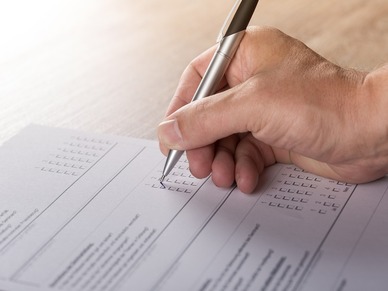Research evidence loves company. Consistent findings from different populations mean the results are less likely to be an accident and more likely to demonstrate a trend.
A new report from Mississippi finds that parents using education savings accounts report high levels of satisfaction, consistent with surveys of a similar law in Arizona. Ninety-one percent of respondents reported some level of satisfaction with Mississippi’s accounts, and 98 percent of respondents reported being either “very satisfied” or “somewhat satisfied” with their educational choices after using an account. Seventy-one percent of parents in the survey reported being “very satisfied” with their choices.
Similar to accounts in Arizona, Florida, and Tennessee, the education savings accounts in Mississippi allow parents to buy educational products and services for their children using a portion of their child’s funds from the state funding formula. Parents can make multiple purchases simultaneously according to their student’s needs.
Mississippi lawmakers gave parents of children with special needs this flexible option in 2015 after years of criticism of state services for these students. Empower MS’s Brett Kittredge says, “It was clear that many of Mississippi’s most vulnerable children were being left behind and this pattern would only continue unless policymakers took action.” In 2014, the Jackson Clarion-Ledger reported that just 23 percent of Mississippi children with special needs graduated from a state high school.
Kittredge explains how Mississippi’s accounts are helping children like Lana Beard, who doctors diagnosed with fetal alcohol syndrome and visual perception disorder. The accounts helped the Beard’s access a school that has specialized services for children like Lana when her assigned district school was no longer the right fit. Her parents used the account to help cover tuition and services at the new school.
Thousands of families across Arizona and Florida have similar stories. In some cases, families use an account to help pay for personal tutors, online classes, home educational needs, and even college savings plans. In Arizona, where students from failing schools and military families are eligible for the accounts, along with children with special needs, approximately one-third of participants are using their account for more than one learning option.
In 2013, researchers from EdChoice and the Goldwater Institute studied the nation’s first education savings accounts in Arizona and also found parents were pleased with their choice to leave an assigned public school and use an account. All parents in the survey reported some level of satisfaction, and 71 percent of participants were “very satisfied,” even among the families that were satisfied with their child’s previous public school. Focus group research conducted by the Goldwater Institute has also found similar satisfaction levels.
Georgia policymakers preparing for the 2017 legislative session should use the growing research evidence on parent satisfaction with education savings accounts to support efforts to give state families similar options.
Even though Mississippi’s program is still in its infancy, Kittredge reports the number of applicants for the accounts in 2016-17 exceeded the state’s cap of 425. He says families are now on a waiting list for a chance to participate next year.
“Parents are the ultimate accountability rating,” Kittredge says. “That is why we believe understanding parental satisfaction with [education savings accounts] is so important in judging this program.”
Jonathan Butcher is a contributing scholar at GCO in addition to his role as the education director at the Goldwater Institute and senior fellow at the Beacon Center of Tennessee.
